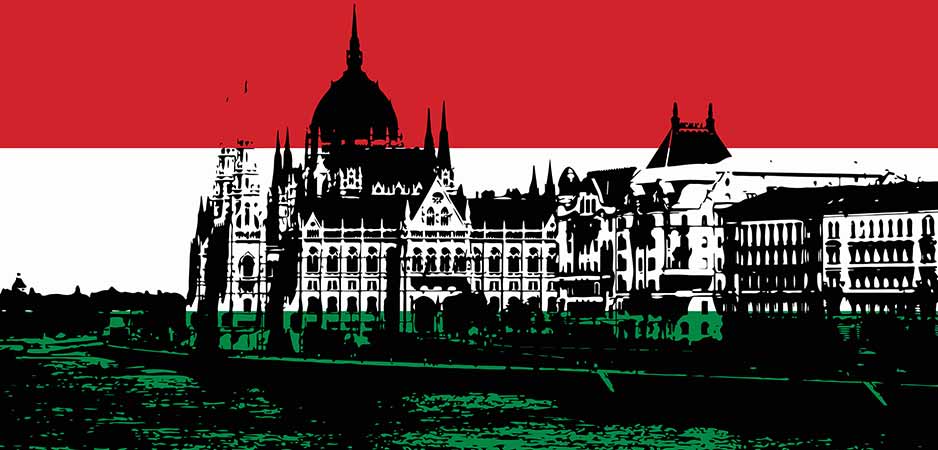
History is not short of examples of autocrats who used a crisis to strengthen their grip on power. Our current crisis, triggered by the global spread of the new coronavirus, appears to be no different. Justified by the need for extraordinary measures to address the pandemic, on March 30 the Hungarian parliament approved an emergency law, titled “On Protecting Against the Coronavirus,” which granted exceptional powers to Prime Minister Viktor Orban.
The new legislation allows Orban to rule by decree, converting the spread of false information — now punishable by up to five years in prison — and the failure to abide by mandatory lockdown restrictions into criminal offenses. Many fear these new measures will be used beyond the struggle against the COVID-19 crisis to silence Hungary’s opposition. Even more worrying is the absence of any reference to an end date or a requirement for renewal of the emergency legislation, which may de facto allow Orban to maintain his exceptional powers indefinitely.
Enabling Acts
For those familiar with the history of Nazi Germany, the decree evokes a nefarious parallel with Hitler’s Enabling Act. In 1933, Hitler exploited the burning of the Reichstag to pass an emergency law that allowed him to enact legislation without consulting parliament, a step decisive to the consolidation of his rule over Germany. Indeed enabled by the act, Hitler removed the autonomy of German states and outlawed non-Nazi political parties. Hitler’s new powers were supposed to expire in 1937, however, by that time, the Führer had already taken control of German institutions and saw no obstacles to renewing his dictatorial powers.
Although the Hungarian emergency law preserves some parliamentary authority, there is little to inspire certainty that the country would not follow a path similar interwar Germany. Orban has a notorious track record as an opponent of liberal democracy, and throughout his years in office has worked to erode democratic institutions, lifting legal and political constraints to curb press freedom and the activities of civil society organizations.
In 2012, the coalition formed by Fidesz and the Christian Democrats replaced the existing constitution, introducing reformed electoral and judicial systems which, among other measures, limited the power of Hungarian courts, reduced the number of seats in parliament and reshaped constituency boundaries, leading to criticism from the opposition and international observers.
Later amendments, passed in 2013, also regulated to role of the press and granted public media outlets monopoly over political advertising during national and European elections. In 2018, Orban strengthened his control over the media through the consolidation of more than 400 media outlets under the Central European Press and Media Foundation (KESMA), a government-friendly entity chaired by individuals with connections to the prime minister.
In addition to the undermining of constitutional checks and balances, nativist discourse was also instrumentalized in the gradual process of erosion of democratic institutions in Hungary. As the refugee crisis intensified, Orban adopted an explicitly anti-immigration stance antagonizing other European leaders who called for a joint effort to tackle one of the greatest migration crises since World War II. Orban described migrants as a “poison,” stating that “every single migrant poses a security and terror risk” to Hungary. This form of nativist rhetoric was recently employed to legitimize the persecution of NGOs operating in the country.
In 2018, Orban accused these organizations of promoting illegal immigration and introduced a legislative package that became known as “Stop Soros” — a reference to the Hungarian-American investor and philanthropist George Soros, the founder of the Open Society Foundations and Orban’s nemesis. In addition to criminalizing NGOs that offered support to migrants, a special tax law was introduced to penalize NGOs that “promote illegal immigration.”
Little Room for Optimism
This brief overview of Hungary’s descent into authoritarianism offers some perspective on the role of the coronavirus emergency law being just another piece in a complex chain of events that have cumulatively contributed to the demise of Hungarian democracy. Although one would like to take comfort in the assurance by the Hungarian prime minister and his party that parliament retains the authority to restore democratic normalcy, Orban’s track record since being elected in 2010 leaves little room for optimism.
The passing of the emergency law comes at a moment when Hungarian democracy was finally beginning to show signs of resilience. In the mayoral elections held in 2019, coalitions of opposition parties defeated Orban’s ruling right-wing Fidesz party in 10 of the 23 major cities across the country, including the capital Budapest, scoring their best result in a decade. Under the new law, however, mayors have little power to challenge Orban’s authority as any measure adopted by them can now be easily overruled.
For now, one can only hope that, once the COVID-19 crisis is over, the
Hungarian opposition will react as it did in 2019, and that the European Union
will uphold its values to prevent a dictatorship from taking root in one of its
member states.
*[The Centre for Analysis of the Radical Right is a partner institution of Fair Observer.]
The views expressed in this article are the author’s own and do not necessarily reflect Fair Observer’s editorial policy.



